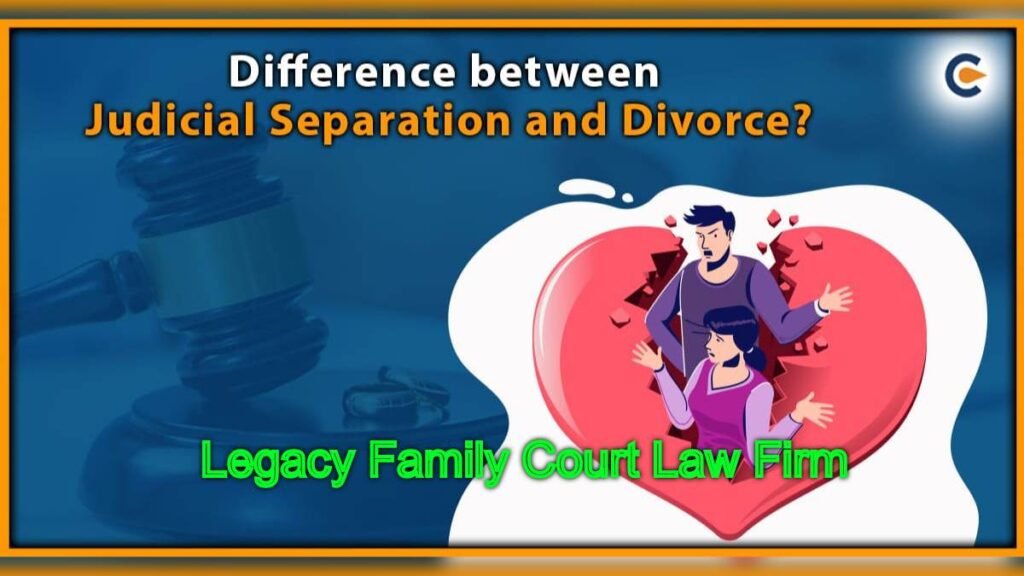Considering Separation? Understand Your Options: Judicial Separation vs. Divorce
Judicial Separation vs. Divorce: Understanding the Differences - Legacy Family Court Law Firm
Marriage is a complex union, and sometimes navigating its challenges can lead to the consideration of legal separation. While divorce is often the first option that comes to mind, judicial separation offers an alternative path for couples facing marital difficulties. At Legacy Family Court Law Firm, we understand the nuances of both options and are committed to guiding you towards the best decision for your unique circumstances.

What is Judicial Separation?
A judicial separation is a court order that allows a married couple to live apart while remaining legally married. This means certain legal and financial ties remain intact, unlike a divorce. Through judicial separation, a judge can determine issues such as:
- Child custody and visitation
- Spousal support
- Division of marital assets and debts
Key Differences Between Judicial Separation and Divorce
While both judicial separation and divorce address marital issues, some crucial differences exist:
- Marital Status: After a judicial separation, you are still legally married. A divorce severs the marital bond completely, allowing you to remarry.
- Financial Implications: Spousal support obligations and asset division might differ in each case. Consult with an attorney for specifics.
- Religious Considerations: Some religions may have restrictions on divorce but allow for judicial separation.
- Reconciliation: Judicial separation can be a temporary measure. Couples can reconcile and resume their marriage without further legal action.
Who Should Consider Judicial Separation?
Judicial separation may be suitable for couples experiencing:
- Marital difficulties: It provides a time-out to reflect and assess the possibility of reconciliation.
- Financial concerns: It may allow one spouse to maintain health insurance benefits tied to the other spouse's employment.
- Religious restrictions: It offers a solution for those whose faith prohibits divorce.
Benefits of Consulting with Legacy Family Court Law Firm
Navigating the legalities of judicial separation requires skilled legal representation. Our experienced attorneys at Legacy Family Court Law Firm can:
- Guide you through the judicial separation process
- Advise you on the potential financial implications
- Advocate for your best interests in court proceedings, if necessary
- Explore avenues for reconciliation, if desired
Read More
- Hindu Divorce Laws: A Guide for Married Couples
- High Court Transfer for Divorce Cases: When to Consider
- Guardianship Advocates: Protecting the Rights of Minors
- Understanding the Guardians and Wards Act in India
- Foreign Divorce in India: Legal Processes and Requirements
- Ministry of Law and Justice:
Choosing the Right Path
Judicial separation and divorce are significant decisions. Legacy Family Court Law Firm is here to provide comprehensive legal advice and support as you navigate this challenging time. Contact us today to schedule a consultation and discuss your specific situation. Together, we will explore the best course of action for you and your family.